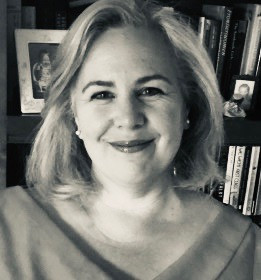Kathleen Seabolt, EdD, is a presenter with Continued Early Childhood Education and an experienced consultant in workforce development, early childhood education, leadership, and management. She is the executive director for the Vanderbilt Child & Family Center, which provides support and resources to the Vanderbilt University community across the spectrum of life. A former preschool and kindergarten teacher, Seabolt is passionate about nature education and fostering children's love of language and literature.
________________________________________________________________________________________________________
 How has the pandemic changed your profession?
How has the pandemic changed your profession?
There is heightened concern for the families we serve, whether they are essential workers who cannot safely socially distance or families that must work remotely and temporarily cannot access child care. Organizations like the Vanderbilt Child & Family Center try to create safety nets for families managing the new reality. For example, our school created a COVID financial distress scholarship.
Child care centers such as mine that have remained open due to their caring for the children of essential workers have increased costs due to PPE and additional staffing but less revenue because of the reduced class sizes. This makes the already insufficient number of child care spaces both scarcer and more expensive to operate.
A silver lining is the palpable, enhanced feelings of collegiality and community. We really are all in this together. There have been some really beautiful expressions of gratitude among parents to teachers, teachers to parents, and teachers to teachers.
What unique challenges have early childhood educators faced this year?
The challenging and complex conditions of work during the pandemic require early childhood educators to possess compassion and strength. It is absolutely necessary that early childhood educators respond to COVID with enhanced safety and health protocols such as masking, daily temperature taking and symptoms screening among adults and children, and reduced class sizes. But change is hard, and these added protocols are a lot on top of the full list of responsibilities already managed by early childhood teachers.
That said, some of the necessary protocols such as mask wearing and social distancing have created opportunities for creativity and innovation. Teachers have written songs and created social stories to positively engage children with new protocols, displayed photo boards showing themselves with masks on and off, and called children at their homes and offered Zoom playdates to support a continued relationship and minimize children’s transitions during necessary site closure.
There is this existential fear of the virus, and the only tools teachers have are masks and handwashing. They have to trust that colleagues and families are taking seriously and implementing suggested precautions in their personal lives. Teachers manage these fears while showing up every day to create a joyful learning community. It’s incredibly inspiring.
How can we still provide the best early childhood educational experience in these challenging times?
Remember that play is a right of childhood. Ensuring that wonder and joyful exploration is available every day is critical to the well-being of children. Children do not have a sense of loss and a sense of fear unless an adult signals it to them.
Teachers are attracted to early childhood education because they have a disposition for caring and nurture. They have a heightened concern for the families with whom they partner, which takes a tremendous toll on their personal well-being. They manage these big feelings while also trying to meet their own and their family’s needs. It is critical to ensure that teachers have resources to manage stress and work–life balance. It’s important at the local, state, and federal level that there is investment in the well-being of teachers through worthy wage, health benefits, and paid leave.
“A silver lining is the palpable, enhanced feelings of collegiality and community. We really are all in this together.”